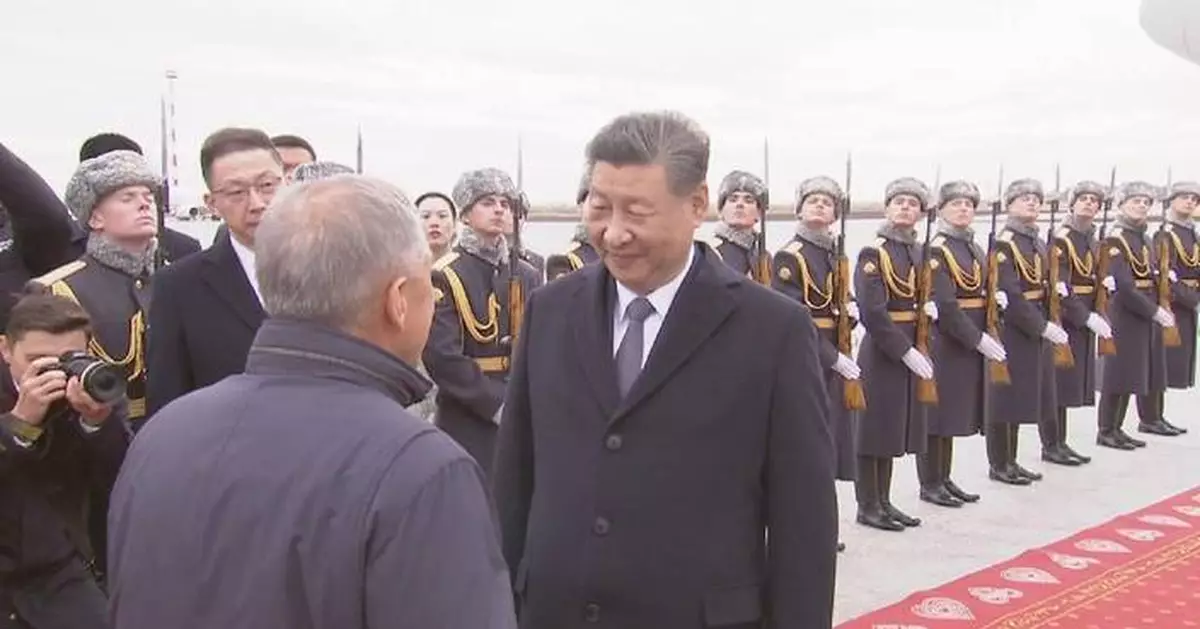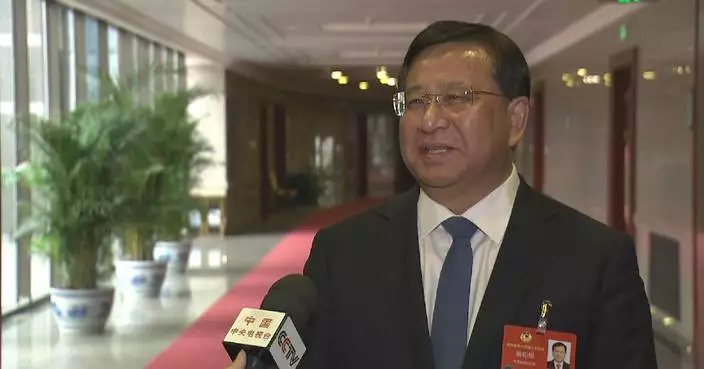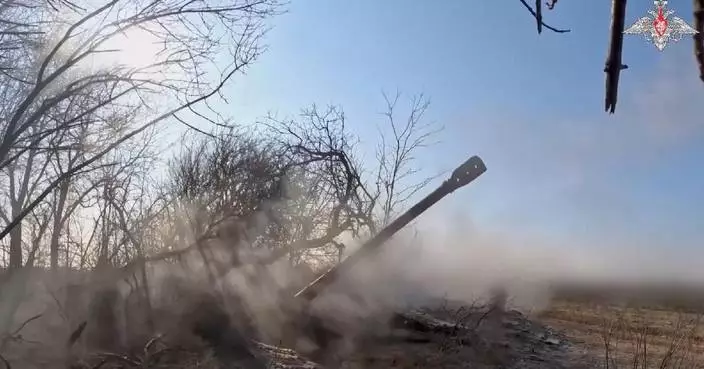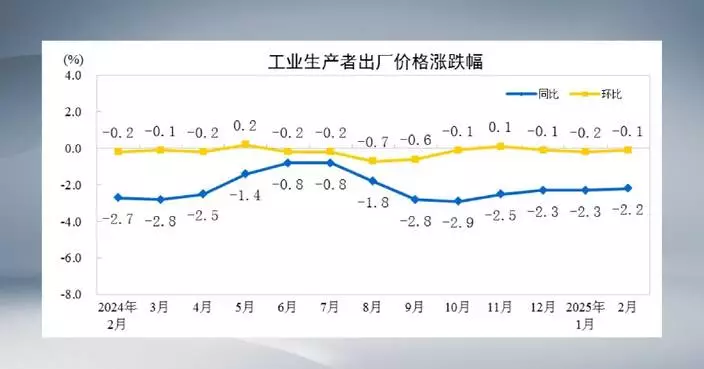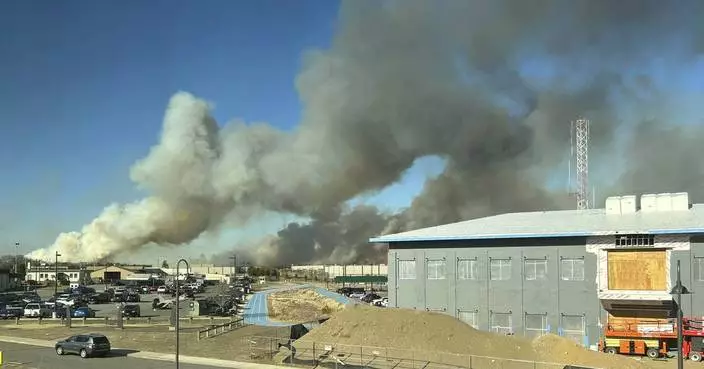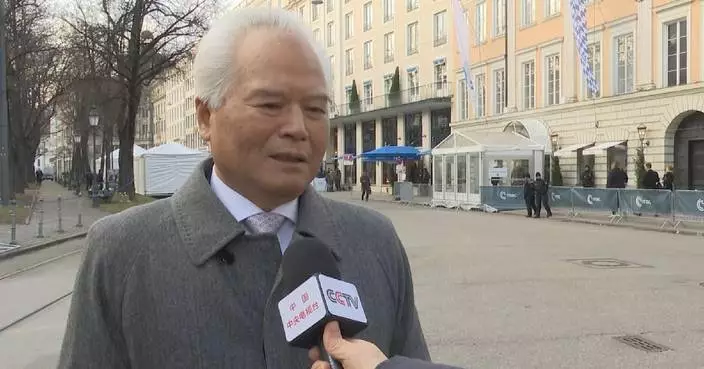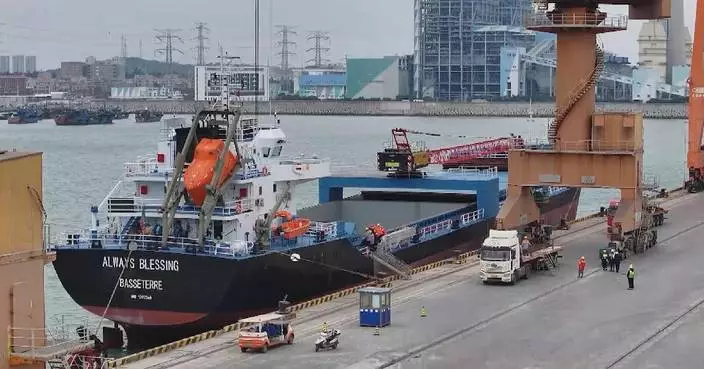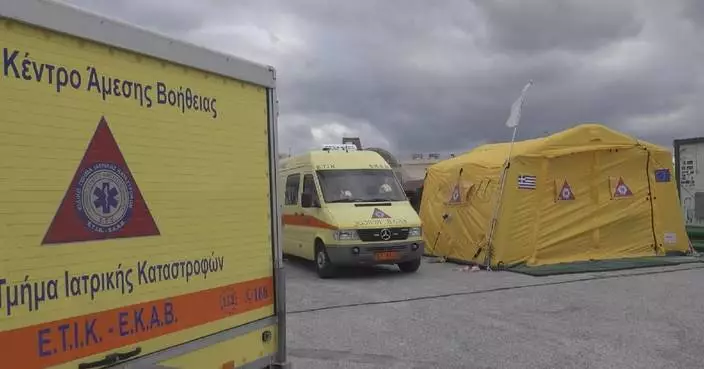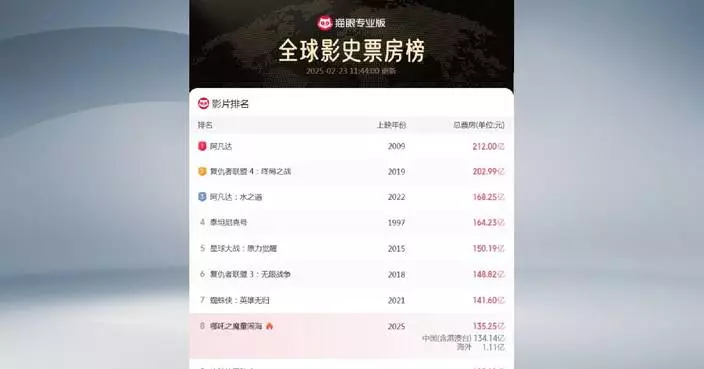Chinese President Xi Jinping was welcomed by multiple high-ranking Russian officials upon his arrival in Kazan, the capital city of western Russia's Republic of Tatarstan, on Tuesday.
Xi is in the Russian city to attend the 16th BRICS Summit, at the invitation of Russian President Vladimir Putin.
At the Kazan International Airport, the Chinese president was warmly greeted by Rustam Minnikhanov, head of Russia's Republic of Tatarstan, prime minister of Tatarstan Alexey Pesoshin, Kazan mayor Ilsur Metshin, and high-ranking officials of Russia's Ministry of Foreign Affairs.
A group of Russian women presented Xi with local specialties to welcome the Chinese president, who was given a Guard of Honor as he made his way on the red carpet.
Xi is set to attend small- and large-group leaders' meetings and the BRICS Plus leaders' dialogue, and will deliver important speeches. Xi will also have in-depth exchange of views with other state leaders on the current international situation, practical BRICS cooperation, the development of the BRICS mechanism and other important issues of common concern.
Xi's entourage, including Cai Qi, member of the Standing Committee of the Political Bureau and director of the General Office of the Communist Party of China (CPC) Central Committee, and Wang Yi, member of the Political Bureau of the CPC Central Committee and foreign minister, arrived on the same plane.
The current summit, running from Tuesday to Thursday, is the first to be held after the expansion of the BRICS organization earlier this year.
BRICS is the acronym for an emerging-market cooperative mechanism that initially comprised Brazil, Russia, India, China and South Africa. In January, it expanded its membership to include Saudi Arabia, Egypt, the United Arab Emirates, Iran and Ethiopia.
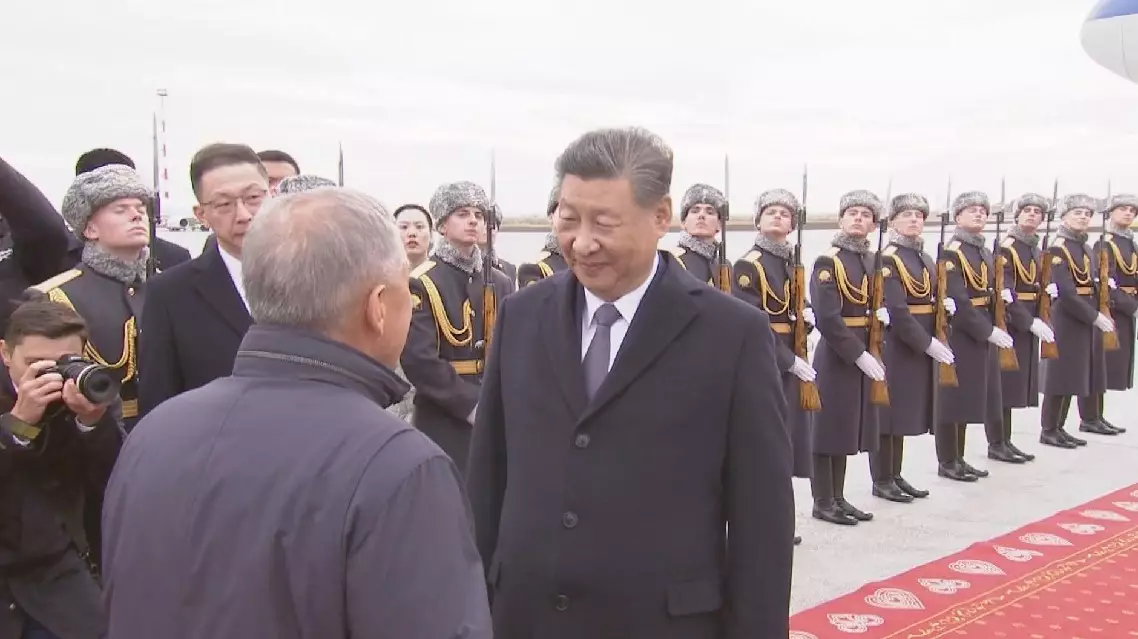
Xi welcomed by high-ranking Russian officials upon arrival at Kazan airport
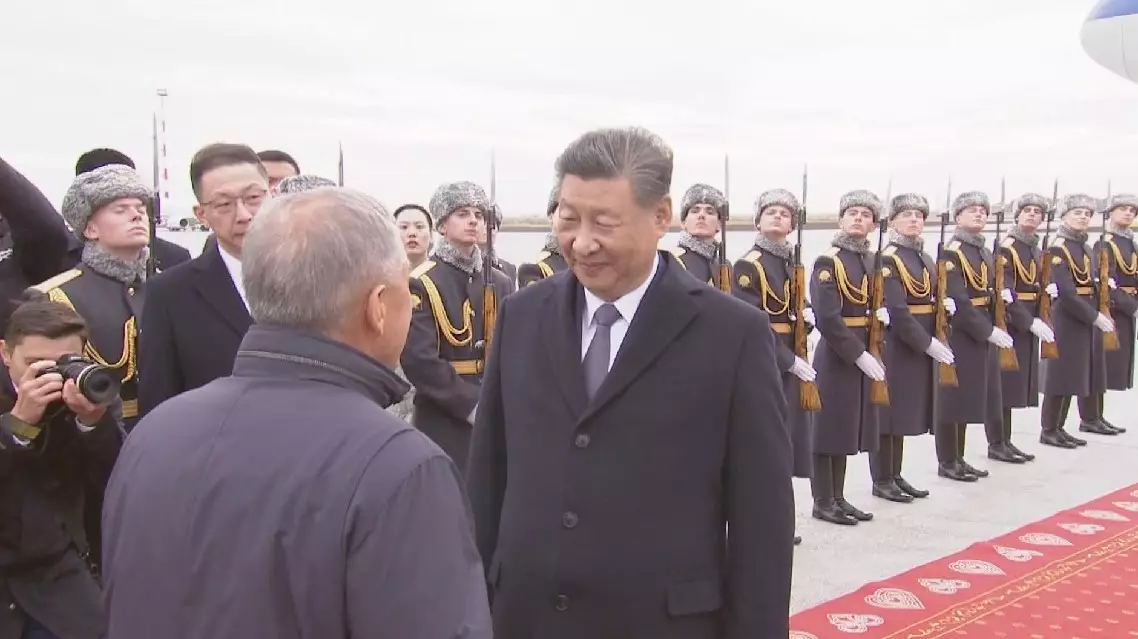
Xi welcomed by high-ranking Russian officials upon arrival at Kazan airport


